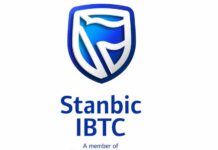Impact on Actions and Other Proceedings
The revocation of Heritage Bank’s licence and on-going liquidation do not extinguish its right of action against third parties. NDIC, as liquidator, may commence or defend any action in the name of Heritage Bank with the addition of the phrase “in-liquidation” after the name of Heritage Bank. Alternatively, NDIC may bring the action in its name disclosing on the face of the process that it is the liquidator of Heritage Bank: Section62(1)(b) of NDIC Act 2023.
Automatic Stay of Actions and Proceedings
Section 69 of the NDIC Act 2023 embodies provisions aimed at protecting NDIC in actions and judicial proceedings. In furtherance of this objective, Section 69(2) provides for an “automatic stay” of actions and proceedings. No such action, suit or proceedings may be proceeded with or commenced against Heritage Bank or NDIC except with the Court’s permission with any terms imposed by the Court. This provision is materially similar to section 580 of CAMA 2020 which applies to companies in liquidation.
“Court” is defined in Section 99 of NDIC Act 2023 as “any Court of competent jurisdiction including a Federal or State High Court, Tribunal, National Industrial Court, or any other Court created by the Constitution of the Federal Republic of Nigeria or an Act of the National Assembly”. This broad definition is instructive as it would avoid the uncertainty shrouding the interpretation of Section 580 of CAMA 2020 due to the narrow definition of “Court” in CAMA as “Federal High Court”. The narrow definition has resulted in conflicting decisions regarding the operation of the automatic stay in proceedings outside the Federal High Court and the proper Court to seek for leave in such instances.
Application for Stay of Pending Suits
In addition to the automatic stay provision in Section 69(2), where NDIC applies to Court for stay of any suit, application, proceedings, execution, attachment or action against Heritage Bank or NDIC, the Court is required to grant such application whether or not leave had earlier been granted to commence or proceed with the action. At first glance, it may seem that Section 73(1) conflicts with the earlier examined Section 69(2) which provides for an automatic stay on actions and proceedings upon the commencement of liquidation. However, Section 73(1) has a different objective from Section 69(2).
Section 73(1) may come into play in at least two circumstances. First, in view of its clear wordings, Section 69(1) only stays actions commenced against a failed bank (for example, Heritage Bank) and NDIC. It will not stay actions commenced or continued by Heritage Bank. In contrast, Section 73(1) makes reference to actions or proceedings “by or against” such failed bank or NDIC. Accordingly, NDIC may rely on Section 73(1) to apply to Court for stay of action which had been commenced by Heritage Bank or NDIC against a third party. Second, Section 73(1) may also apply where the NDIC seeks to stay an action in which a party had previously obtained leave of court under Section 69(2) to either commence or continue the action after the commencement of liquidation. This explains the focus on “staying pending suits”, that is, continuing on-going suits as opposed to commencement of new suits.
Section 73(3) disallows the enforcement of judgement sums against the assets of a failed bank like Heritage Bank undergoing liquidation in certain circumstances. In this regard, a judgment creditor that has obtained judgement sum against Heritage Bank will be disallowed from enforcing the judgment where the judgement debt, (i) has not been satisfied prior to commencement of the liquidation; or (ii) is obtained after the commencement of the liquidation. Although the side note to Section 73 of NDIC Act 2023 reads “stay of pending suits”, section 73(3) does not appear to deal with stay of pending proceedings. Perhaps, this provision would have been more suitably placed under section 69 which broadly deals with protection in respect of judicial proceedings.
From a practical standpoint, Section 73(3) aims to, (i) preserve assets of a failed bank like Heritage Bank from dissipation; (ii) promote the pari passu rule by ensuring that similarly situated creditors are treated similarly. Instructively, judgment creditors whose judgement debts are not subjects of appeal are to be treated as unsecured creditors in the liquidation process: Section 57(4) NDIC Act 2023. Furthermore, interest on any judgment debt ceases from the date of commencement of liquidation: Section 57(6) NDIC Act 2023.
Protection in respect of Judicial Proceedings
In addition to the previously examined Section 69(2) of NDIC Act 2023 which embodies automatic stay of actions and proceedings, there are other subsections under section 69 which are aimed at protecting NDIC in judicial proceedings. From a practical standpoint, these provisions are ultimately aimed at protecting assets of failed banks like Heritage Bank from dissipation through enforcement actions or other proceedings. The provisions are summarily examined below.
First, Section 69(1) disallows courts from granting “restorative, prohibitive or like order” against NDIC in relation to (i) payment of insured deposit to depositors of Heritage Bank or (ii) NDIC acting as liquidator or provisional liquidator under the NDIC Act 2023. It also limits the remedies available to a claimant in such an action against NDIC to damages not exceeding specified thresholds. As previously noted, this provision appears to violate Section 6(6)(a) and (b) of the Constitution and may receive a similar judicial treatment as Section 34(6) of AMCON Act 2019 in AMCON v Shittu – Appeal No. CA/L/1266/2019.
Second, Section 89(3) disallows courts from making a garnishee order nisi or absolute or attachment, sequestration, distress or execution against the NDIC in respect of any judgement debt or other liabilities owed by Heritage Bank or against Heritage Bank’s accounts, assets or effects.
Third, a creditor who had issued execution against any goods or land belonging to Heritage Bank or attached any debt due to Heritage Bank is disallowed from retaining the benefit of the execution or attachment unless the creditor had completed the execution or attachment before Heritage Bank’s liquidation commenced: Section 69(4) NDIC Act 2023. This provision is similar to Section 666 of CAMA 2020 which applies to companies in liquidation.
Fourth, NDIC may recover goods of Heritage Bank which have been taken in execution if prior to the sale of the goods or execution by receipt or recovery of full amount of levy, NDIC notifies the court sheriff that it has become that it has become the liquidator of Heritage Bank. In such circumstance, the sheriff must deliver the goods and any money seized or received in part satisfaction of the execution to NDIC provided NDIC satisfies the charge for costs of execution: Section 69(7) NDIC Act 2023.
Power to take Interim Custody of Debtor’s Property
In addition to the protection which NDIC has as liquidator, NDIC is armed in diverse respects for debt recovery. NDIC may, by an ex parte application, apply for an interlocutory order to take custody of movable or immovable property of a debtor pending the determination of the debt recovery or other actions: Section 63(1) NDIC Act 2023. In this regard, a court’s order will subsist till the determination of the action except discharged by court notwithstanding any contrary provision in any enactment: Section 63(3). The NDIC may make such application before filing the action or at the time of filing the action or any time thereafter. Unlike in regular applications for mareva injunction, the NDIC is not required to show, amongst other things, real or imminent risk that the debtor may dissipate the asset or put it beyond the reach of NDIC.
Power to Obtain Freezing Orders against Debtors
The NDIC may also apply to Court to freeze accounts of debtors of Heritage Bank where it has reasonable cause to believe that such debtor has funds in such accounts in a bank or other financial institutions in Nigeria. In this regard, NDIC may either before, after or at the time of filing an action in Court apply by way of a motion ex parte for an interlocutory order freezing the accounts of the debtor: Section 64(1) of NDIC Act 2023.
Where a Court makes a freezing order, such an order will subsist till judgment or the final determination of the action unless discharged by the Court. This is notwithstanding anything to the contrary in any enactment: Section 64(2) NDIC Act 2023. Section 64(2) will come in useful to NDIC in relation to debtors who, for any reason, had not signed the GSI mandate with Heritage Bank at the time of obtaining credit facilities. As previously highlighted, the GSI is strictly contractual and cannot be employed against a debtor who has not signed-off the GSI mandate form.
Disapplication of Limitation Laws
Limitation laws of the States and the Federal Capital Territory do not apply to: (i) actions by NDIC for the recovery of debts owed to Heritage Bank, and (ii) civil actions by NDIC on behalf of Heritage Bank against any third party: Section 61 NDIC Act 2023. In consequence, NDIC has a right of action in perpetuity against debtors of Heritage Bank — even after its dissolution. This right of action in perpetuity is re-enforced by Section 62(2) which empowers NDIC to recover interest on any debt owed to Heritage Bank “at any time” and “notwithstanding any provision in any other law”. Such interest will continue to accrue even after the conclusion of Heritage Bank’s liquidation. Conversely, the disapplication of limitation statutes does not apply or extend to actions against Heritage Bank.
Conclusion
Heritage Bank’s liquidation is the first liquidation of a deposit money bank, under the NDIC Act 2023. It is a test case for the application and operation of some of the novel provisions of the NDIC Act 2023. Based on the three-part discourse, it is crystal clear that the NDIC Act 2023, has significantly strengthened NDIC for the purposes of liquidation of failed banks like Heritage Bank, and maximising returns or recoveries to stakeholders such as depositors and creditors. The extent to which the NDIC would (be able to) effectively and efficiently deploy these statutory powers in that regard, remains to be seen.
Concluded.
























